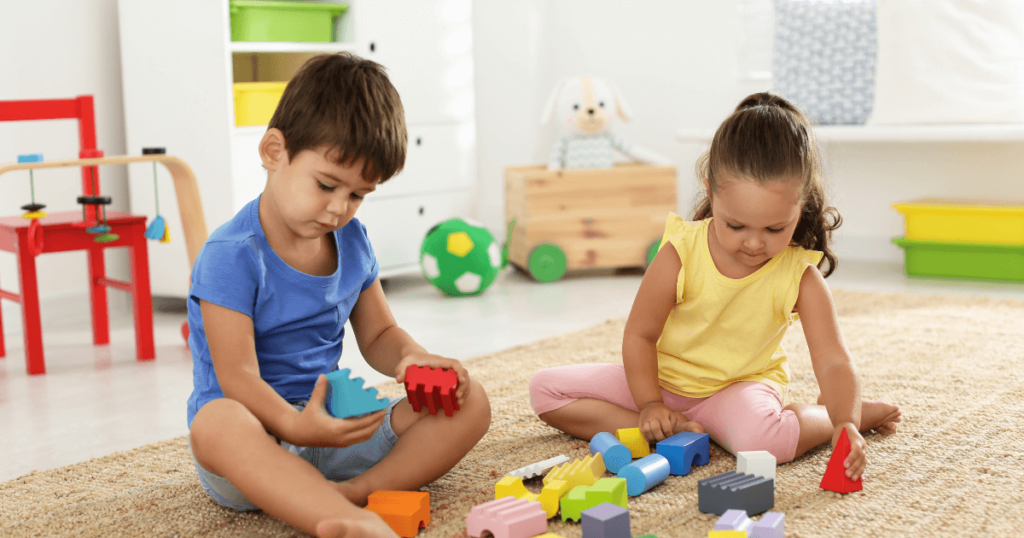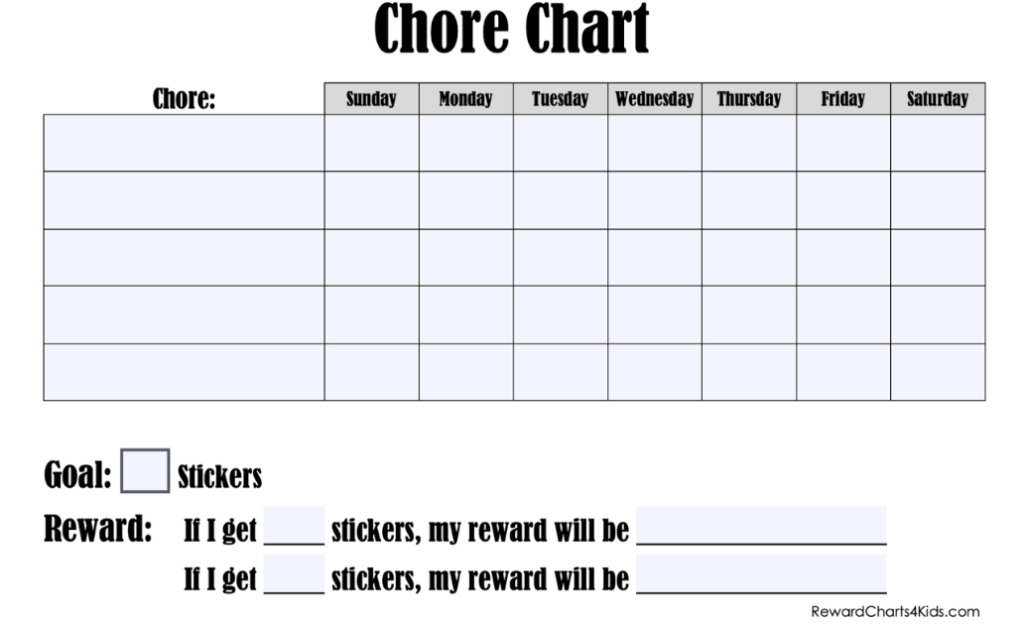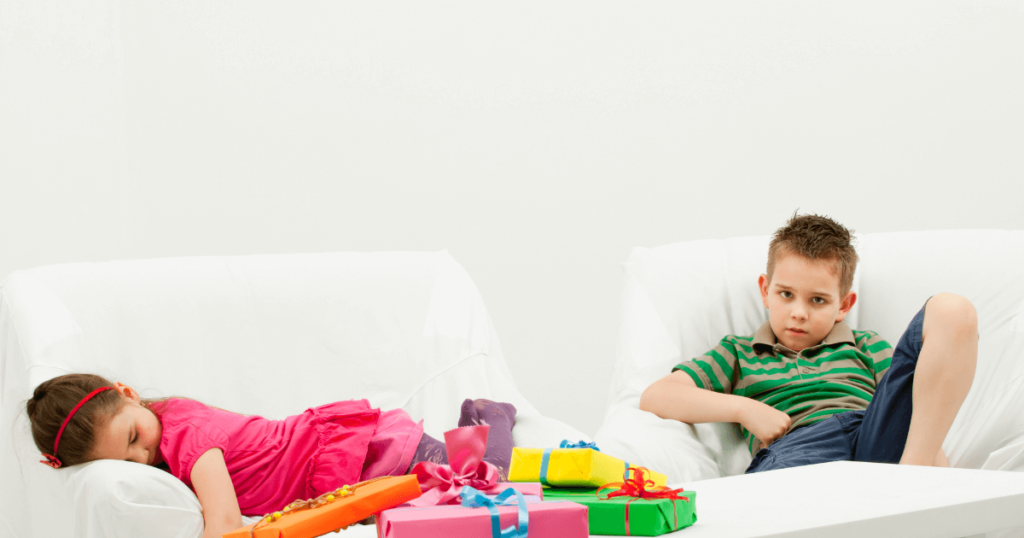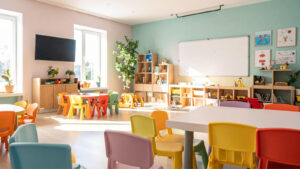When your child is ready for doses of responsibility, it is a quintessential time to give them small activities they can do independently. In turn, this will be beneficial to their development, encourage self-sufficiency, and lastly, take a (small) load off your plate. This time requires you to give your child opportunities to be self-reliant while, at the same time, doing your best to let them figure it out and make mistakes.
We know how frustrating it can be when your kid wants to do a task independently, only for it to turn out differently than you would’ve expected. It’s vital to remain patient with your little ones as they take on responsibilities and gain confidence, and also not to overwhelm them with tasks. Instead, slowly introduce new ones as they are ready for more.
We’ve put together a list of ways you can start to encourage self-sufficiency without overwhelming your children.
Let Them Dress Themselves

Allowing your child the opportunity to pick out their clothes in the morning will give them a sense of confidence and independence. Start out slow with a couple of days a week, and once they feel confident in the task, it’s probably safe to transition to allowing them to choose their outfit every day. And yes- sometimes when you give your child that option, they’ll come down the steps in a Halloween-themed outfit in the middle of April! Try to resist the tendency to suggest a different outfit and move forward with your day. Don’t stress; their style will (usually) get better as they age!
Similarly, we also recommend giving your child the responsibility to prepare to go outside. Whether that be putting on their own coats, hats, and mittens or putting their socks and shoes on themselves, this will help lighten your load and hand over more responsibility to your kid.
Require Clean-up After Playtime

We know the short-term solution is to pick up your children’s toys after playtime. It’s quick, easy, and done the way you want. But the more you take the reins, the more your child will expect it, and the less they will learn about bearing responsibility. Introduce the chore by explaining what “clean up” means. Demonstrating and breaking down the task into smaller tasks can help make overwhelming actions seem more achievable.
Then, explain why clean-up is necessary. Describing “so that no one gets hurt” or “so that none of the pieces go missing” helps children make the connection between play and tidying up. We’ve said it once, and we’ll say it again, once your child has completed their task, let it be. If you fix what your kid has already put effort into, they might be less likely to clean up the next time.
If these explanations don’t immediately make sense to your child, don’t worry. It will take some time for your child to completely comprehend responsibility. Alternatively, you can learn to use incentives to encourage your child to clean up.
Build Self-Esteem to Reinforce Autonomy

Building your child’s self-esteem is key to reinforcing autonomy. It is completely normal for your child to be nervous or co-dependent, but the goal is to build them up and eliminate those feelings. Talking to your children positively during conflict and teaching them gratitude can go a long way.
Practicing gratitude helps improve concentration, strengthens immune systems, reduces depression, stress, and anxiety, and leads to a more optimistic outlook on life. One of the best-known experiments about gratitude, the “Counting Blessings Versus Burdens” study, found that when participants were asked to focus on gratitude, they were more “attentive, determined, energetic, enthusiastic, excited, interested, joyful, and strong.” In other words, the studies found that gratitude can be an acquired skill if a conscious effort is made.
Talking to your children in a positive way while discussing difficult emotions or feelings can also improve your child’s self-esteem. This teaches children that despite something going wrong, this isn’t the end all be all. Using self-esteem-building tactics and teaching gratitude is especially important when raising daughters because girls struggle with their image more in our society (not to say that boys don’t). Additionally, positive labels help build up your child, but they do not mean you should excuse bad behavior. You must always call things “as they are.”
Develop a Small List of Easy Household Chores

Chores will vary depending on age, but tasks as easy as keeping a clean bedroom, helping take out the trash, setting the table, or feeding a pet will help your child gain confidence. If chores are overwhelming at first, try breaking down the task into smaller tasks or an editable chore chart.
For example, when cleaning a bedroom, your checklist could include: making the bed, putting away toys, picking up clothes off the floor, and putting clean clothes away. This way, you can give your child the list, and they should be able to clean up their room all on their own. The best part is, they’ll feel good knowing that they did a chore without any help!
Furthermore, not only are children learning how to be self-sufficient by cleaning up, but they are also working on fine motor skills and hand-eye coordination.
Let Them Get Bored

This concept of letting children be bored may sound counterintuitive. Contrary to popular belief, parental intervention is not always beneficial when kids claim to be bored. According to one study reported on BBC, “children need to have stand-and-stare time, time imagining and pursuing their own thinking processes, or assimilating their experiences through play, or just observing the world around them.”
In other words, you don’t have to feel bad about not keeping your kid entertained. They can use boredom as an opportunity to exercise various skills, like creativity, problem-solving, and decision-making. With that being said, this doesn’t mean just leaving your children unattended with no direction; instead, your child needs an unstructured but stimulating environment to arouse their creativity.
A lack of structure can lead to frustration. That is why it is important to provide a “constructive boredom framework” that allows them to practice decision-making and manage their time alone. For example, you may remind them that there are Legos and craft materials but not tell them what to make or how to make it. Creating an activity chart to help your child remember what activities they can do on their own when they are bored can help them further develop their autonomy.
The Bottomline
Handing over responsibilities to children is an exciting time for their development. Remember parents, it isn’t just about your kids in this process. Patience is a virtue, and it always will be as your child continues to grow and assume more responsibility. They will begin to learn new life skills that will carry over into their young childhood and eventually adulthood. Once you begin incorporating more tasks, you will start to see growth in your child like never before!




